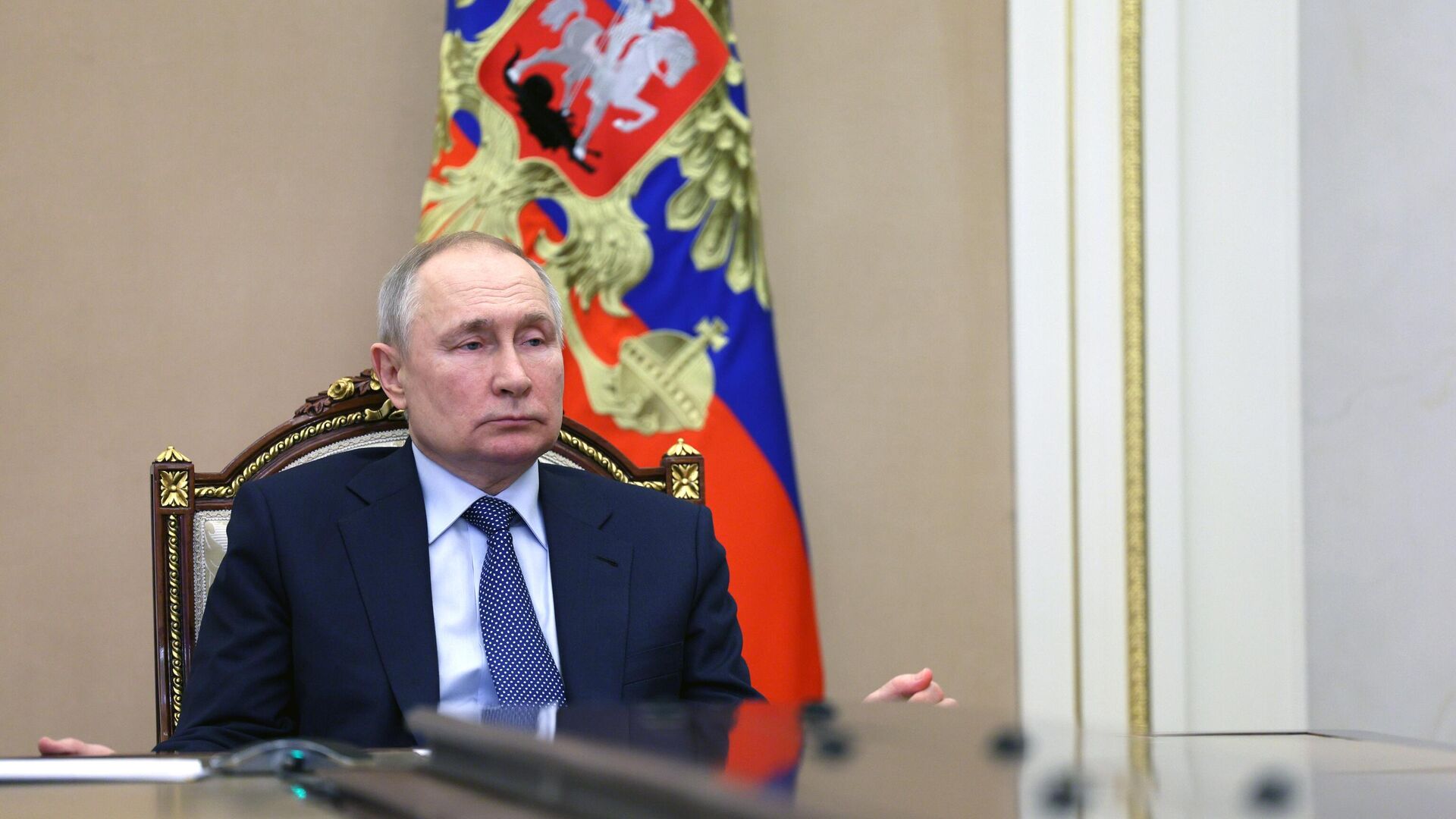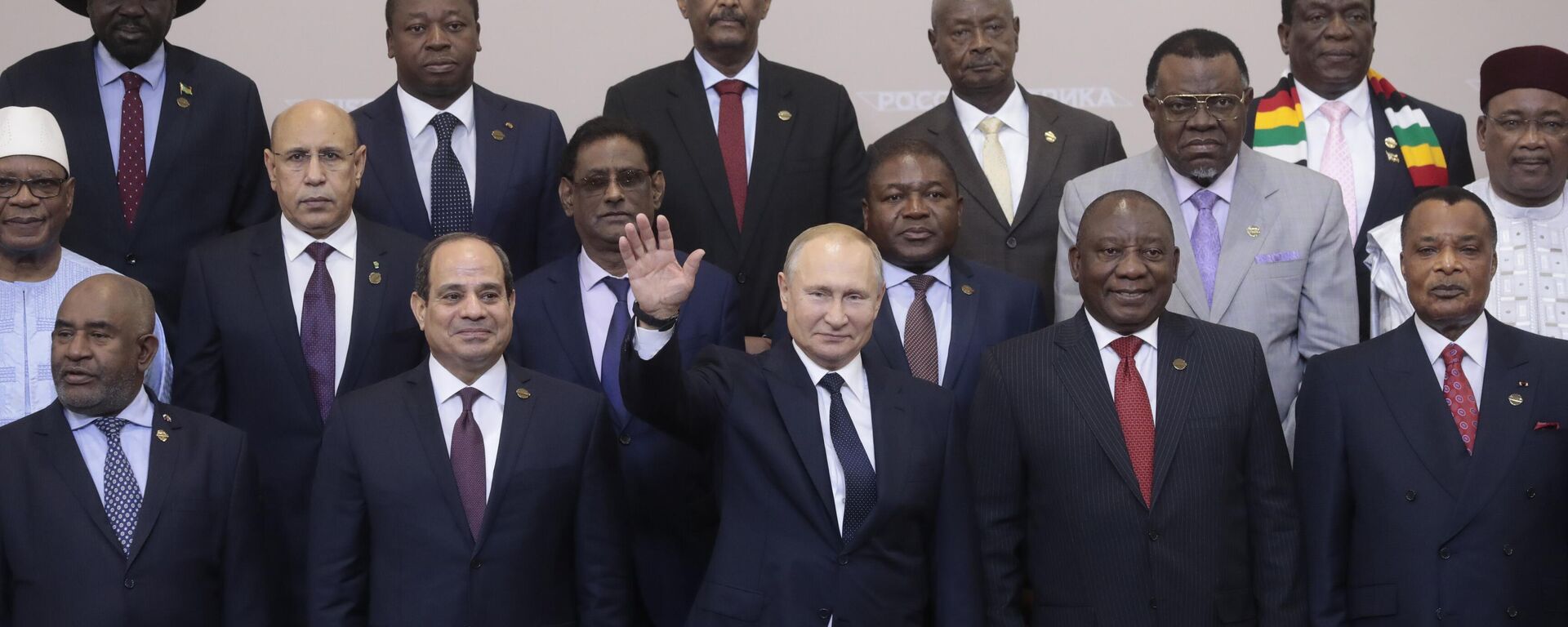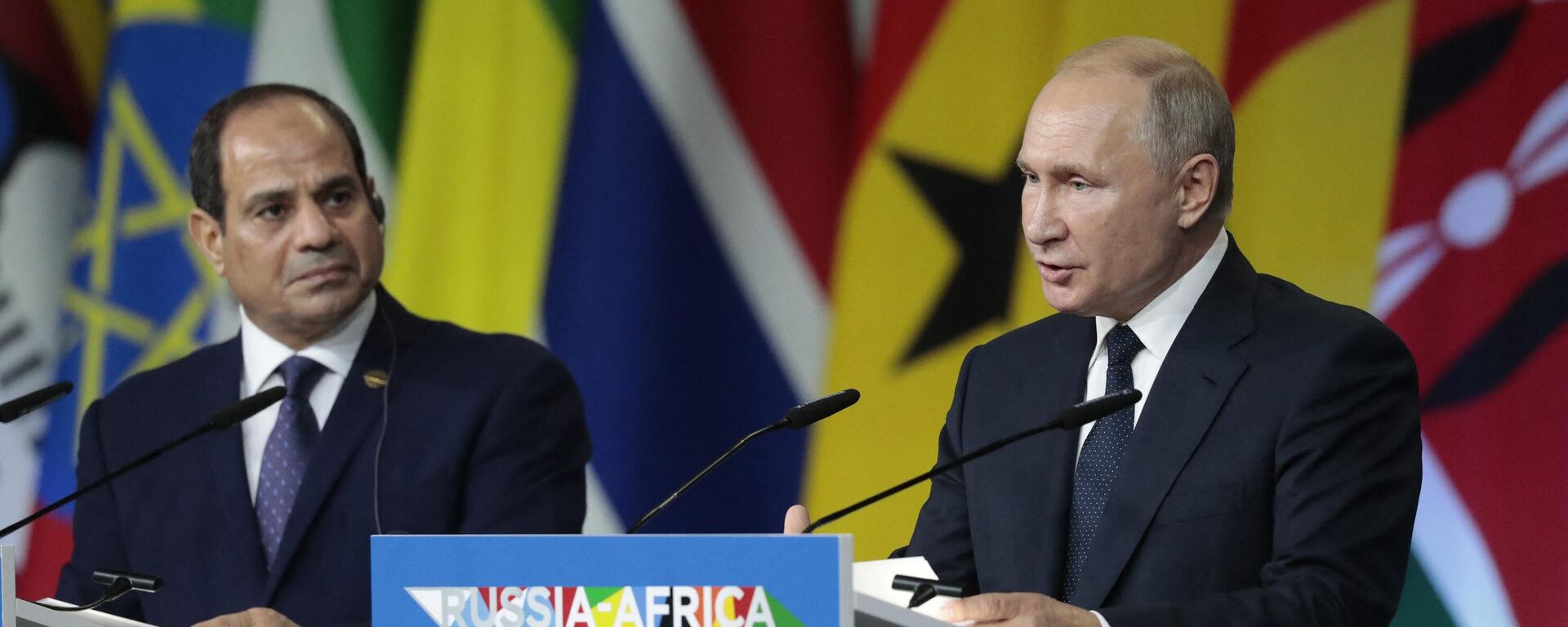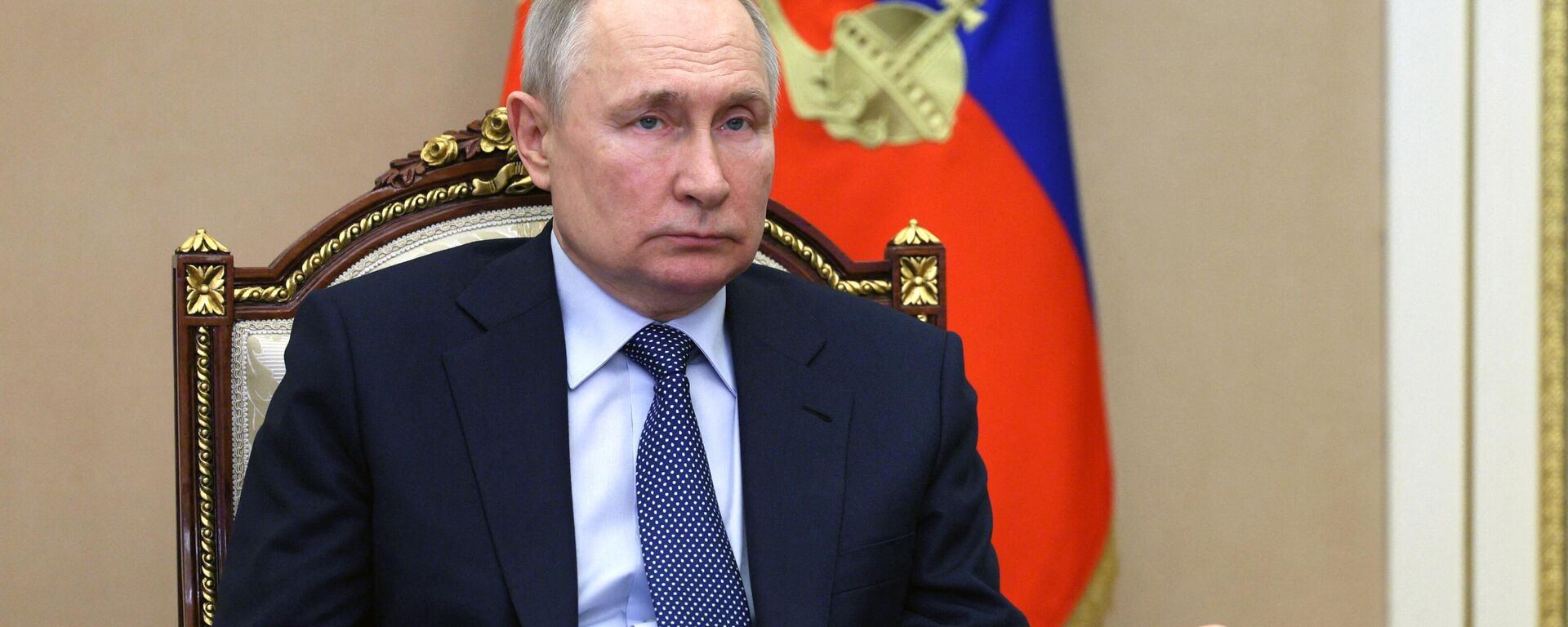https://sputnikglobe.com/20230403/relevant-and-refreshing---experts-on-russias-new-foreign-policy-concept-towards-africa-1109081515.html
'Relevant and Refreshing' - Experts on Russia's New Foreign Policy Concept Towards Africa
'Relevant and Refreshing' - Experts on Russia's New Foreign Policy Concept Towards Africa
Sputnik International
Russia's new foreign policy doctrine demonstrates country's shift towards African continent, acknowledges the region as a prioritized one for Russia, Raymond Matlala, South African BRICS Youth Association Chairman, told Sputnik.
2023-04-03T16:54+0000
2023-04-03T16:54+0000
2023-04-03T16:54+0000
africa
africa insight
expert
russia
cooperation
policy
foreign policy
foreign policy priority
foreign policy statements
doctrine
https://cdn1.img.sputnikglobe.com/img/07e7/04/03/1109083329_0:160:3073:1888_1920x0_80_0_0_fd0ccd3dd2b2525fca60e0262b8ed7f5.jpg
Russia's new foreign policy doctrine demonstrates the country's shift towards Africa and acknowledges the region as a prioritized one for Russia, Raymond Matlala, South African BRICS Youth Association chairman, told Sputnik.The expert stresses that according to the concept, Russia views Africa as an important partner, expressing its desire to deepen cooperation so that both sides benefit.According to the expert, Russia's new foreign policy doctrine also emphasizes Africa's important role in establishing a more just multipolar world, as well as to eliminate socio-economic inequality.Matlala notes that the neo-colonial policies of some developed states, such as "unfair trade agreements, debt traps, and the extraction of natural resources without adequate compensation," have raised concerns on the continent in recent years.According to the expert, Russia's support of Africa in this context indicates the country's readiness for cooperation aimed at tackling such concerns, as well as strengthening Russia-Africa ties.The new foreign policy concept indicates a "clear strategic intent" to, firstly, combat US hegemony and, secondly, promote "a new multilateral global order," Ashraf Patel, senior research associate with the Institute for Global Dialogue and Member of the South Africa BRICS Think Tank Network, says.Among other things, Russia's new foreign policy concept towards Africa includes means of combating neo-colonialism, Matlala notes.The listed means are as follows: supporting African nations in ensuring their sovereignty and independence, including via military and military-technical cooperation; providing assistance in addressing and overcoming the consequences of armed conflicts in Africa, especially interethnic and ethnic ones, and advocating for African countries to play a leading role in these efforts; expanding trade and investment with African states and promoting African integration structures; promoting scientific cooperation, training of national personnel, strengthening health systems, and promoting intercultural dialogue.According to Matlala, these points are highly relevant and useful as they are aimed at tackling the neo-colonial policies that are still being practiced towards Africa. According to Ashraf Patel, the new foreign policy approach is "relevant and refreshing," as it stands in contrast to today's West's neo-colonial approach towards Africa.He also states that, among other things, the new policy partly indicates the global move towards the East and Global South. The four founding members of BRICS – Brazil, Russia, India, and China – originally established the bloc in 2005 (the association was known as BRIC at the time). When South Africa joined the group in 2010, its name was changed to BRICS.Earlier this year, Russian Foreign Minister Sergey Lavrov stated that the number of countries wanting to join BRICS and the SCO (Shanghai Cooperation Organization) has increased significantly.Algeria is among the African countries that have officially applied to join the block. Moreover, in mid-March, Zimbabwean politician and governing Zimbabwe African National Union – Patriotic Front (ZANU–PF) party speaker Christopher Mutsvangwa said that his country was also eager to join BRICS.
https://sputnikglobe.com/20230331/russia-to-contribute-to-africas-evolution-as-a-center-of-world-development-foreign-policy-concept-1108989910.html
https://sputnikglobe.com/20230403/now-or-never-high-time-to-revive-russia-africa-cooperation-expert-insists-1109065741.html
https://sputnikglobe.com/20230401/win-win-partnership--expert-on-africa-in-new-russian-foreign-policy-doctrine-1109023285.html
africa
russia
Sputnik International
feedback@sputniknews.com
+74956456601
MIA „Rossiya Segodnya“
2023
News
en_EN
Sputnik International
feedback@sputniknews.com
+74956456601
MIA „Rossiya Segodnya“
Sputnik International
feedback@sputniknews.com
+74956456601
MIA „Rossiya Segodnya“
africa insight, foreign policy, russia's new foreign policy concept, africa insight, experts' opinion, african continent, russia-africa cooperation, mutually beneficial, brics youth association, western neocolonialism, neocolonial approach, neocolonial politics, gaining independence, africa youth, emerging economies
africa insight, foreign policy, russia's new foreign policy concept, africa insight, experts' opinion, african continent, russia-africa cooperation, mutually beneficial, brics youth association, western neocolonialism, neocolonial approach, neocolonial politics, gaining independence, africa youth, emerging economies
'Relevant and Refreshing' - Experts on Russia's New Foreign Policy Concept Towards Africa
Africa is named as one of the top priorities of Russia's new foreign policy concept announced on March 31 by President Vladimir Putin. The document shows Moscow's eagerness to "give more space" to the continent, show solidarity with Africa in its desire to create a more just multipolar world, and address socio-economic inequality.
Russia's new foreign policy doctrine demonstrates the country's shift towards Africa and acknowledges the region as a prioritized one for Russia, Raymond Matlala, South African BRICS Youth Association chairman, told Sputnik.
The expert stresses that according to the concept, Russia views Africa as an important partner, expressing its desire to deepen cooperation so that both sides benefit.
"This shift in focus towards Africa suggests that Russia sees opportunities for mutual benefit in increasing its engagement with the continent," the expert stresses. "By supporting African countries in areas such as security, economic development, and social and cultural development, Russia may be seeking to strengthen its strategic position and influence in the region."
According to the expert, Russia's new foreign policy doctrine also emphasizes
Africa's important role in establishing a more just multipolar world, as well as to eliminate socio-economic inequality.
"Additionally, the document's reference to the negative impact of neo-colonial policies of some developed states towards Africa indicates Russia's alignment with African states in their efforts to address issues of inequality and promote greater self-determination," says Matlala.
Matlala notes that the neo-colonial policies of some developed states, such as "unfair trade agreements, debt traps, and the extraction of natural resources without adequate compensation," have raised concerns on the continent in recent years.
According to the expert, Russia's support of Africa in this context indicates the country's readiness for cooperation aimed at tackling such concerns, as well as strengthening Russia-Africa ties.
"Russia's solidarity with African states on this issue may signal an intention to collaborate with African nations to address these concerns and advocate for more equitable relationships between developed and developing nations," Matlala stresses. "Additionally, this stance may help to strengthen Russia's diplomatic and economic ties with African countries, particularly as some nations look to diversify their partnerships and move away from reliance on traditional Western allies."
The new foreign policy concept indicates a "clear strategic intent" to, firstly,
combat US hegemony and, secondly, promote "a new multilateral global order,"
Ashraf Patel, senior research associate with the Institute for Global Dialogue and Member of the South Africa BRICS Think Tank Network, says.
Among other things, Russia's new foreign policy concept towards Africa includes means of combating neo-colonialism, Matlala notes.
The listed means are as follows: supporting African nations in ensuring their sovereignty and independence, including via military and military-technical cooperation; providing assistance in addressing and overcoming the consequences of armed conflicts in Africa, especially interethnic and ethnic ones, and advocating for African countries to play a leading role in these efforts; expanding trade and investment with African states and promoting African integration structures; promoting scientific cooperation, training of national personnel, strengthening health systems, and promoting intercultural dialogue.
According to Matlala, these points are highly relevant and useful as they are aimed at tackling the neo-colonial policies that are
still being practiced towards Africa.
"These means of combating neocolonialism are relevant in the sense that they address some of the key ways in which neo-colonialism manifests in Africa, such as through military interventions, economic exploitation, and cultural marginalization," the expert explains. "By supporting African states in ensuring their sovereignty and independence, Russia is providing a counterbalance to external forces that seek to undermine African agency and self-determination."
According to Ashraf Patel
, the new foreign policy approach is "relevant and refreshing," as it stands in contrast to today's
West's neo-colonial approach towards Africa.
"Africa is still seen as a continent in colonial terms: a 'basket case,' and a continent that needs charity, and not fair trade. Hence no fair investment or trade rules at the WTO and the G7 and the G20. So, without fair trade, Africa is then dependent on foreign donor aid, which comes with many unfair prescribed conditionalities. So this new foreign policy approach is relevant and refreshing," the expert outlines.
He also states that, among other things, the new policy partly indicates the global move towards the East and Global South.
"This is relevant to the developing world, BRICS nations and G7 nations. With China, India, and Eurasia, it also signals a multipolar short shift Eastwards and to the Global South," Patel stresses. "It will mean much better outreach to the developing world, as well as deepening and expanding BRICS for instance."
The four founding members of BRICS – Brazil, Russia, India, and China – originally established the bloc in 2005 (the association was known as BRIC at the time). When South Africa joined the group in 2010, its name was changed to BRICS.
Earlier this year, Russian Foreign Minister Sergey Lavrov stated that the number of countries
wanting to join BRICS and the SCO (Shanghai Cooperation Organization) has increased significantly.
"It's worth mentioning that over the past couple of years, including during the first year of the Russian special military operation in Ukraine, the number of countries that want to join the BRICS and the Shanghai Cooperation Organization has increased dramatically. As of now, there are about twenty of them," Lavrov outlined.
Algeria is among the African countries that have officially applied to join the block. Moreover, in mid-March, Zimbabwean politician and governing Zimbabwe African National Union – Patriotic Front (ZANU–PF) party speaker
Christopher Mutsvangwa said that his country was also eager to join BRICS.





